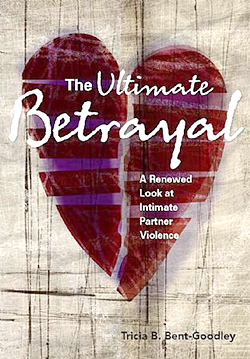
By Paul R. Pace
Tricia Bent-Goodley, PhD, MSW, LICSW, LCSW-C, professor emeritus at the School of Social Work at Howard University, answers questions about her NASW Press book, “The Ultimate Betrayal: A Renewed Look at Intimate Partner Violence.”
What inspired this book?
I was inspired to write "The Ultimate Betrayal" because I could see the value of having social workers better understand how to respond to intimate partner violence. When I was a new social worker—fresh out of social work school—I worked as a family preservation worker in central Harlem. I had no idea how many families I would connect with where intimate partner violence was present. I felt ill-prepared. There was so much I didn’t know. I realized that my lack of knowledge could increase the risk of my clients and even my own risk. So I did everything I could to grow my knowledge in this area. I wrote the book thinking about this experience. I would have loved to have a book that spoke to me as a social worker and that could give me a broad knowledge of the area. That is the gap I was inspired to fill for other practitioners.
What audience may benefit from the book?
I believe in writing for diverse audiences. As a result, the book is for social workers at all levels of practice. It includes content for micro, mezzo and macro practitioners. It is also for diverse groups of professionals such as psychologists, counselors, public health and youth workers. In addition, the book is accessible to community leaders who want to learn more and identify how they can be responsive. My book also speaks to survivors. They are the reason I do what I do so the book had to be accessible to them. Over the years, I have gotten letters from survivors about how much the book helped them. I am so grateful for that.
What are the key takeaways?
Key takeaways from the book include the importance of understanding the dynamics of intimate partner violence and the diverse ways it can manifest. Another key takeaway is that social workers are uniquely positioned to prevent and respond to intimate partner violence. We are key to addressing this issue so we must get out in front of it. Another key takeaway is that being culturally responsive and trauma-informed are part of being ethical in our practice around this issue.